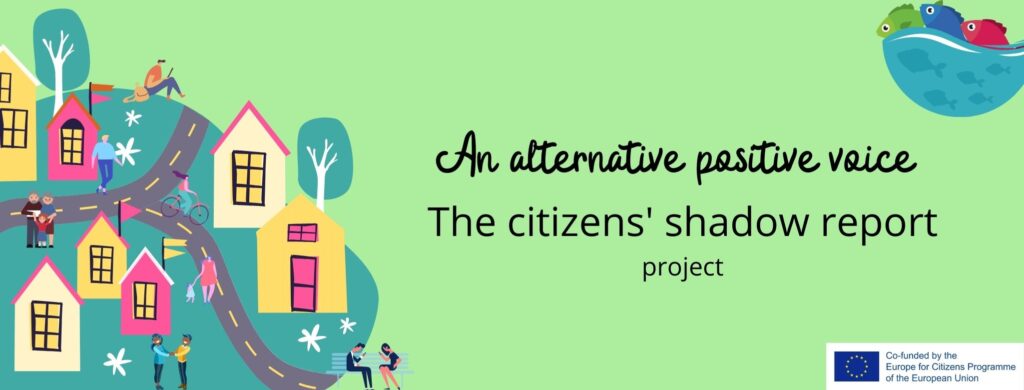
WHAT AND HOW?
An alternative positive voice. The citizens’ Shadow Report is an innovative project revealing the potential of civil society involvement in shaping and implementing EU policies in a relatively new EU policy-making field, in the macro-regions. How? Nine CSOs from AT, DE, DK, HU, IT, PL, RO, SK and SI covering in a balanced manner the four macro-regions (the Baltic Sea, Danube, Adriatic-Ionian and Alpine) combined efforts to produce a typical civil reflection paper, the Shadow Report on the Commission biennial report released in 2021 on the implementation of EU macro-regional strategies.
THE CORE CONCEPT AND PROCEDURE
The core concept was to challenge and complement the top-down character of the Commission’s document by a bottom-up approach and put CSOs on the political map of macro-regions.
Even if the unforeseen COVID-19 pandemic posed a serious challenge the project started with a preparatory meeting (October 2021) followed by 4 events:
27-29 August 2021 in Mariager, Denmark for the Baltic Sea macro-region,
25 November 2021, online event for the Alpine macro-region,
18-19 February 2022 in Budapest Hungary, for the Danube macro-region and
03-04 March 2022 in Palermo, Italy for the Adriatic-Ionian macro-region.

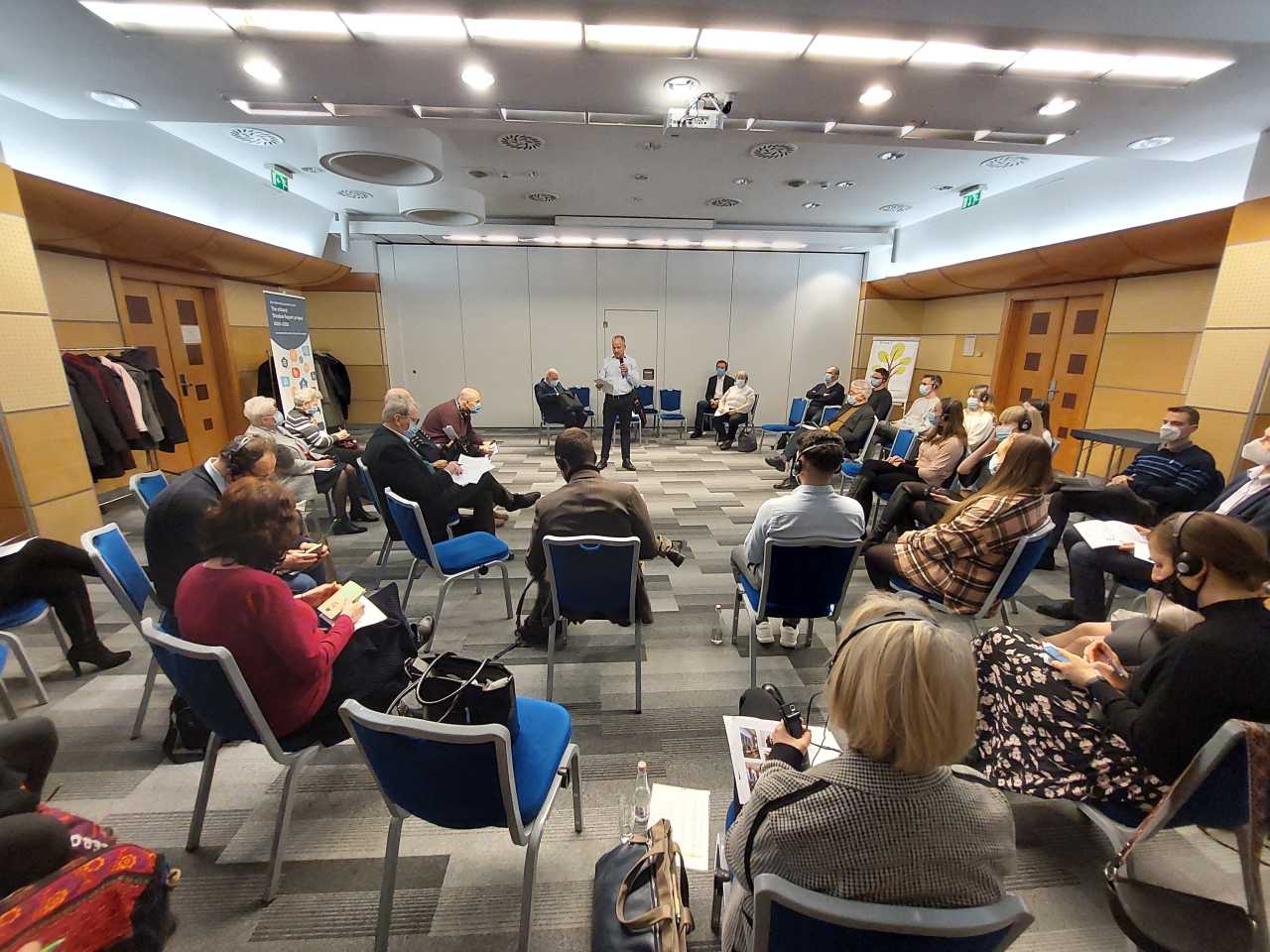
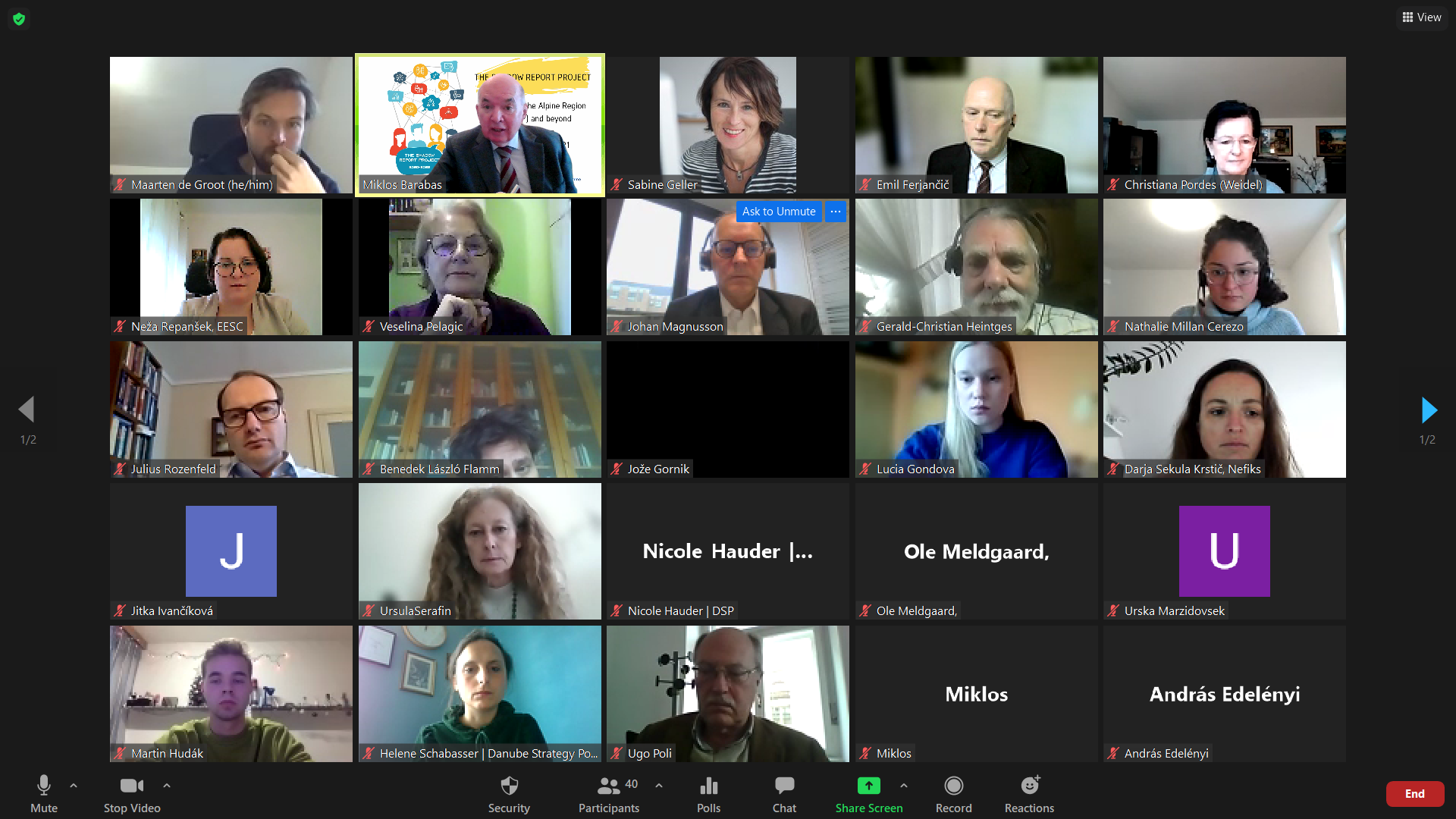
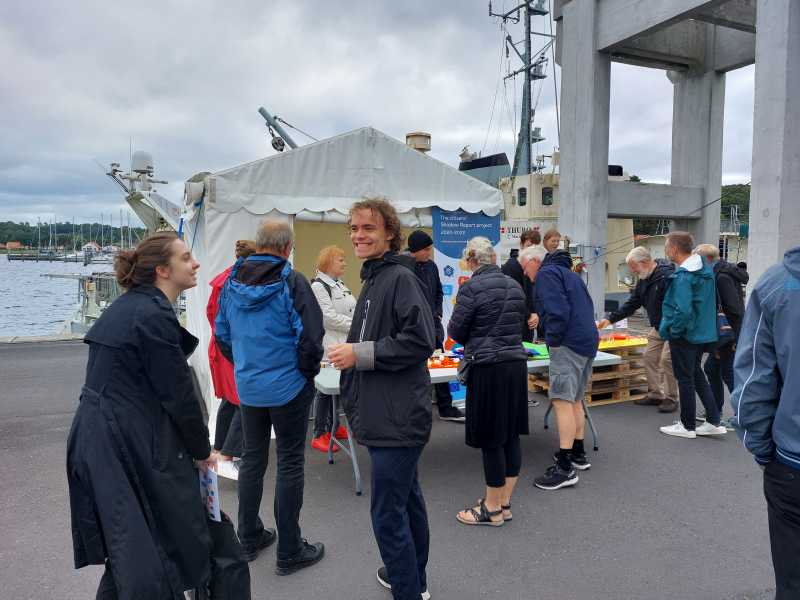
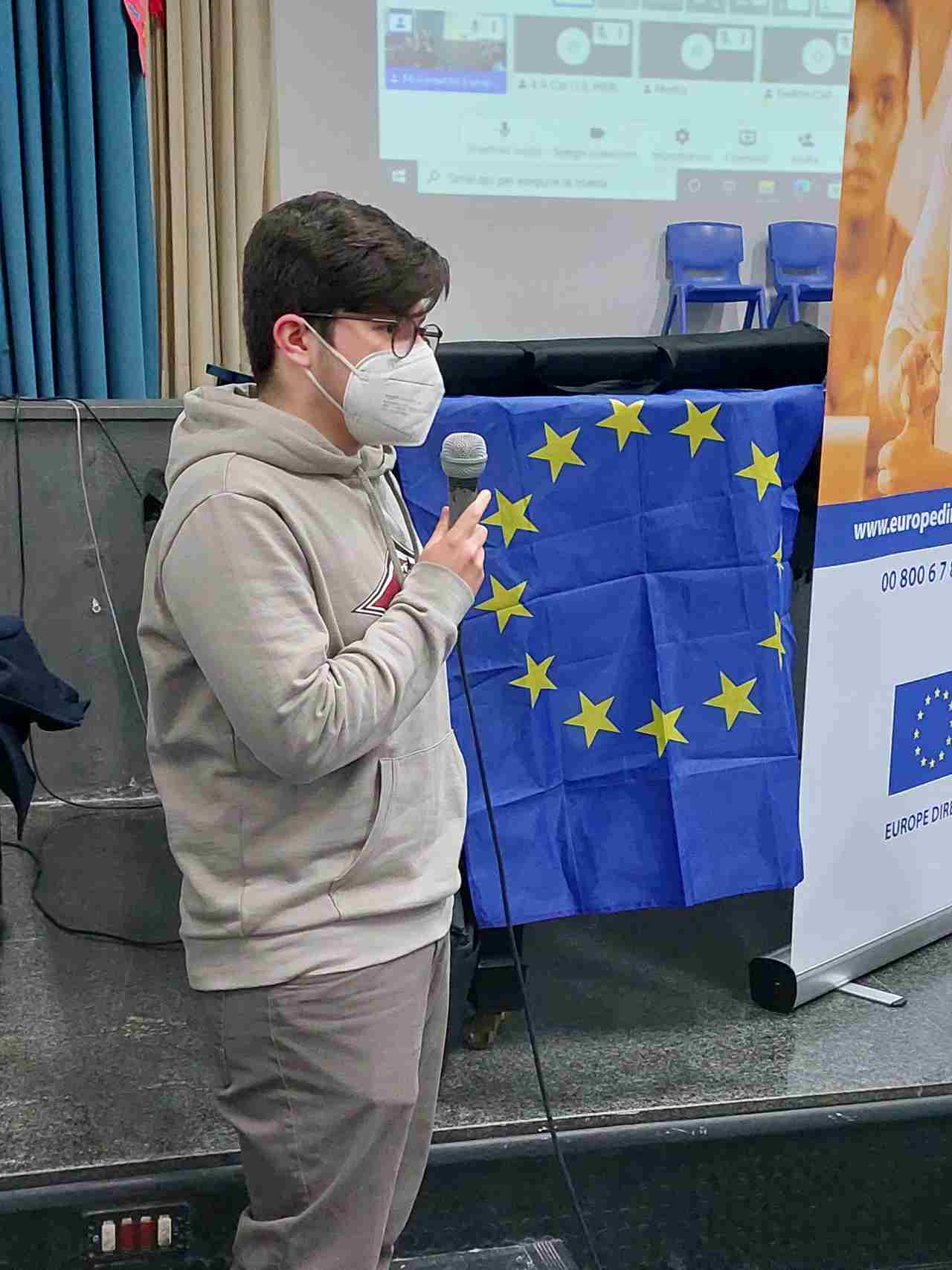
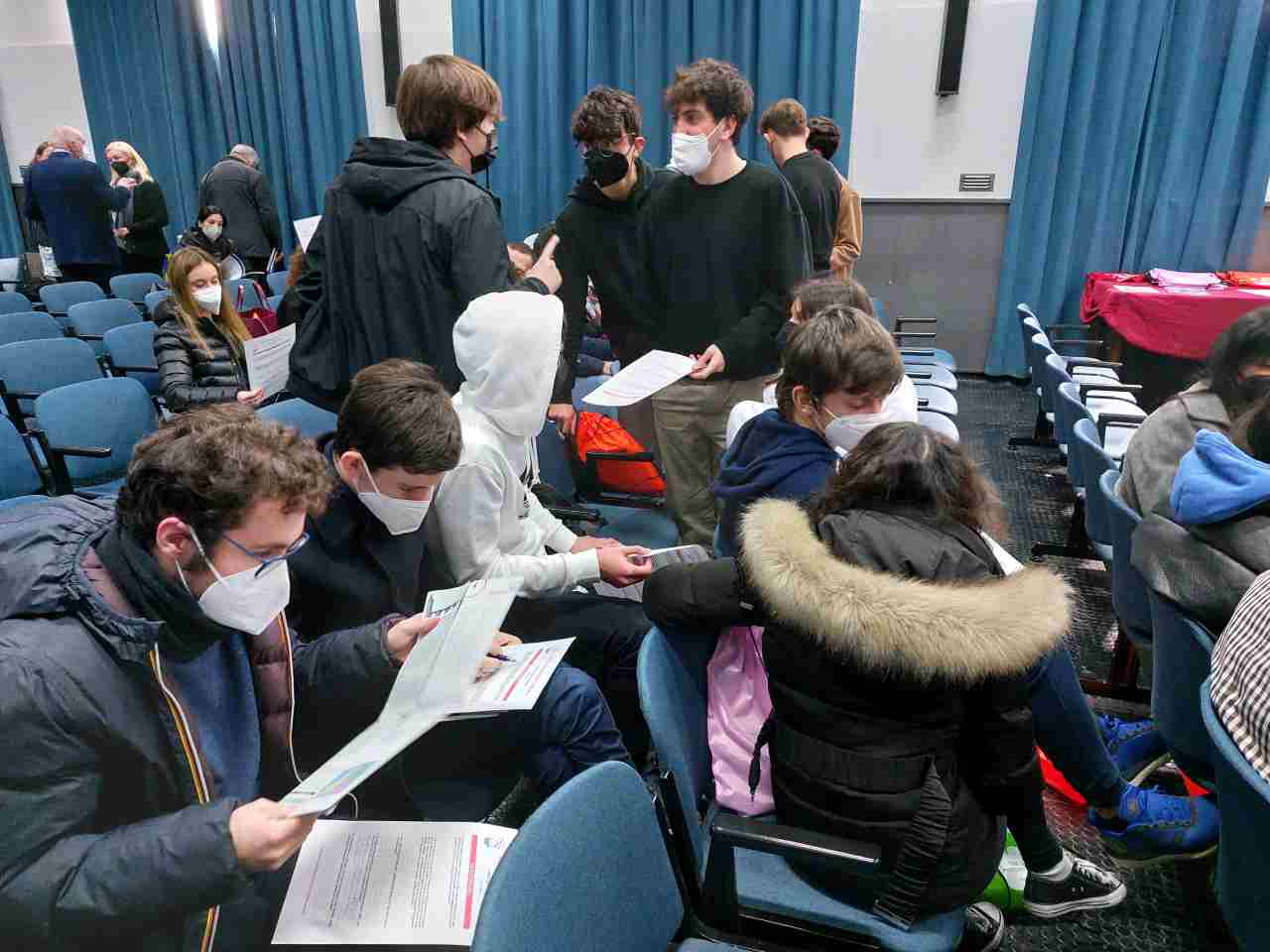
These well-attended events proved to be ideal occasions to have face-to-face meetings with ordinary citizens among them many young people, collect opinions and proposals and have a taste of macro-regionalism in a local setting.
The process was completed by an online closing (March 2022) and a follow-up (April 2022) event.
Parallel with these programme elements a questionnaire was broadly distributed. The responses received created an important component of the Shadow Report.
The text produced is a typical civil society accomplishment. Its 10 chapters cover such issues as the state of civil society in the four macro-regions, partnership and participation, COVID-19 and solidarity, youth involvement, the CoFE and citizens, Green Europe, smart solutions and several others.
The whole text is based on citizens’ inputs supported by specific suggestions and additioal quotes. Contributions came from all the 19 macro-regional countries Sweden, the Baltic countries, Germany, Italy, Romania and Hungary taking the lead. Additional proposals came from 5 non-macro-regional countries. Every effort was made to avoid the well-kown „Place Schuman”-style.
MAIN ACHIEVEMENTS
- With the introduction of our „In-between” idea it was possible to present the macro-regional policy as a useful link, an intermediary between top-level policy making (the EU institutions) and the local actors (the citizens);
- the usefuless and value-added nature of involvement of citizens and their organisations in shaping and implementing EU policies especially in macro-regions was demonstrated;
- it was possible to prove that a critical and creative civil reflection on a typical EU document can lead to the emergence of fresh ideas and new approaches, paving the way to partnership building;
- the project brought together for the first time and combined the efforts of CSOs from the 4 macro-regions; they learned from each other and exchanged best practices;
- the innovative nature of the project was appreciated when it was presented at events as the High-Level Group Meeting at the EU Macro-Regional Strategy Week, at the Annual Forums of macro-regions, at the EWRC and others;
- concrete proposals are presented at the end of each of the 10 Report chapters;
- public knowledge of EU macro-regional policy has noticeably increased;
- the strong European dimension and the participatory nature of the project significatly increased the ownership feeling of those involved;
- inputs were made to CoFE and the EYY2022 was used as a reference point.
The Report including its printed version was broadly distributed.
FOLLOW-UP
The whole process leading to the elaboration and finalisation of the Shadow Report text clearly demonstrated the interest in and commitment of civil society organisations from the 4 macro-regions towards the advancement of EU macro-regional strategies. A practical step in this direction could and will be the elaboration of a macro-regional civil society strategy an effective new instrument to promote citizens’ participation and contribution.
The project is co-funded by the Europe for Citizens Programme of the European Union.
Please read the project information sheet for details.
![]()